This Is What Happened When a Refugee Cat Was Reunited With His Family

By:
On Friday, the Guardian shared one Iraqi refugee's inspiring reunion with his family: After an arduous journey across Europe, Kunkush the cat made his way to his family.
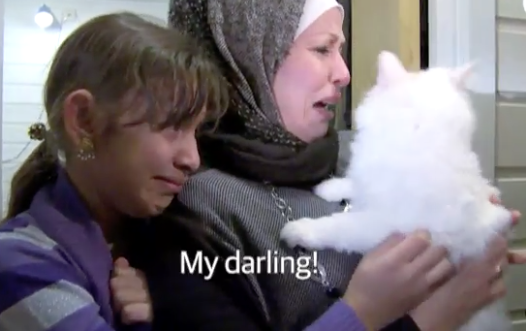 The Guardian - theguardian.com
The Guardian - theguardian.com
Three-year-old Kunkush and his family came to Lesvos, Greece on a boat from ISIS controlled Mosul, Iraq in November 2015, according to an ABC News Report.
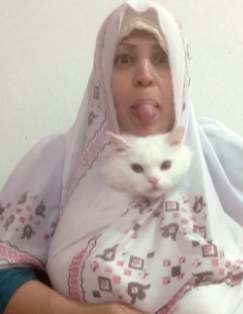 The Guardian - theguardian.com
The Guardian - theguardian.com
But when the boat landed, Kunkush got scared and broke away, wandering the shore of Greece. After an exhausting search, Kunkush's family were unable to find him and had to continue their journey.
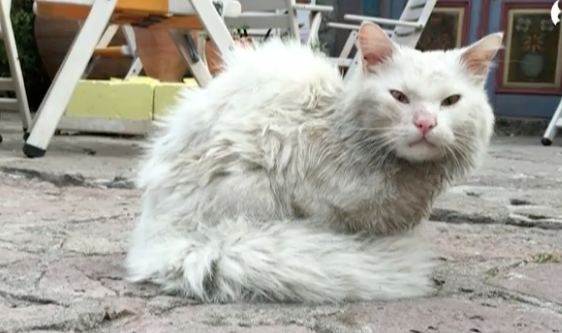 The Guardian - theguardian.com
The Guardian - theguardian.com
Three days later, Kunkush was located in Skala Sykmanenia, a nearby fisherman village. Ashley Anderson, an American volunteer, and her friend Amy Shrodes dedicated themselves to reuniting the feline with his family and even got him a passport. They named him Dias, after the Greek god of strength.
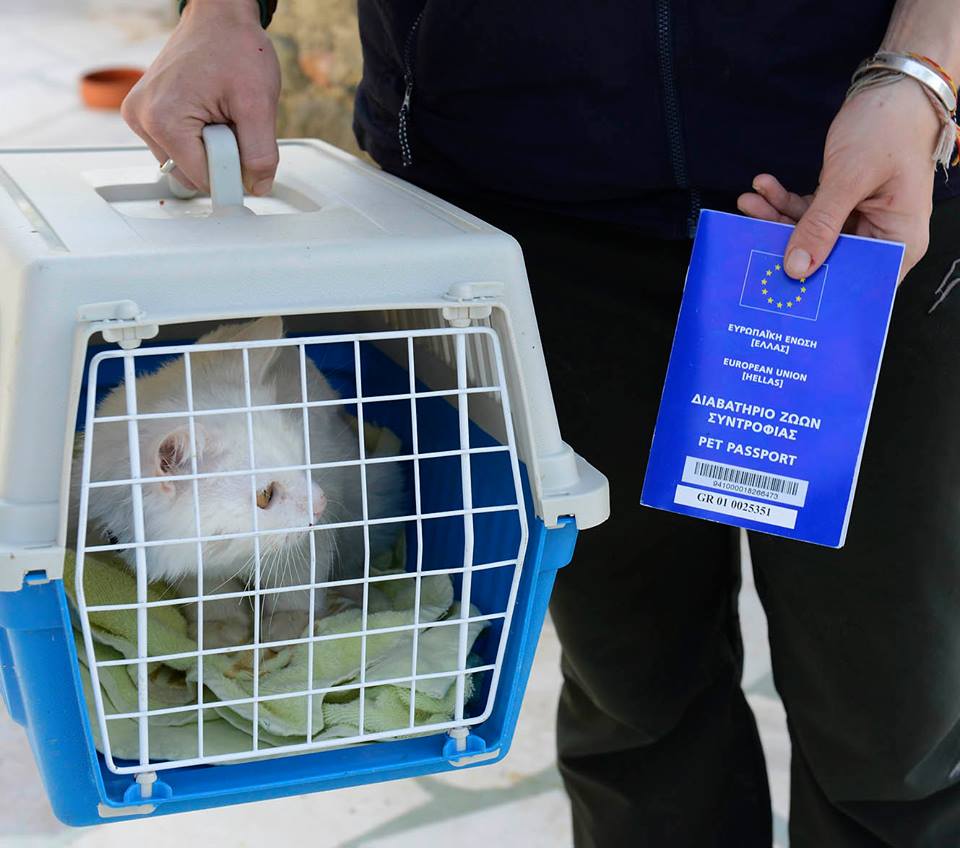 facebook/kunkushdias - facebook.com
facebook/kunkushdias - facebook.com
"This family probably paid thousands to get a spot for themselves on this rubber boat — even infants required a fee," Anderson told The Dodo. "They cared enough about this cat to bring [him] with them."
Anderson launched a Facebook page dedicated to the cause. The page earned over 4,000 likes, and they raised $1,174 on GoFundMe.
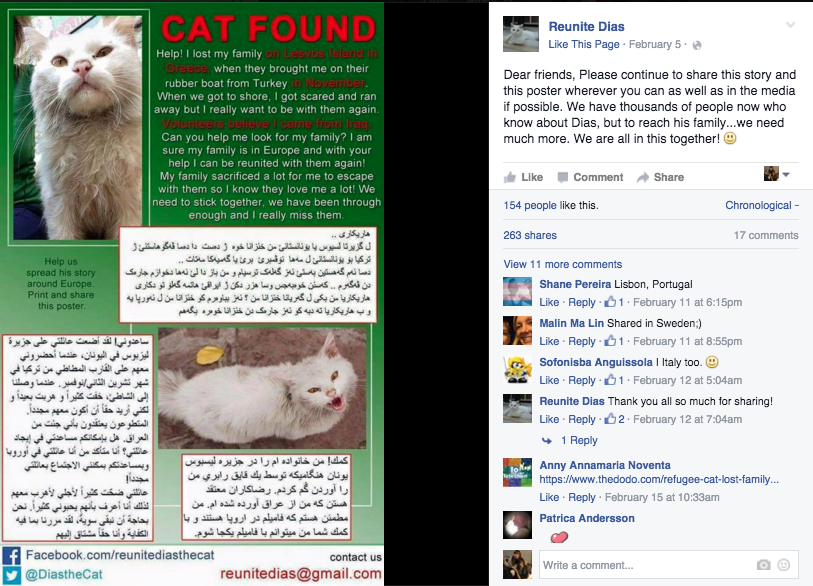 facebook/kunkushdias - facebook.com
facebook/kunkushdias - facebook.com
"The story is much more than just a story about a cat," Anderson told The Dodo. "I want there to be, in the suffering and pain, a little beacon of hope. I really want to find this family."
In hopes of finding his family, volunteers brought Kunkush to Berlin, a popular destination for refugees, where he was vaccinated and housed in a foster home.
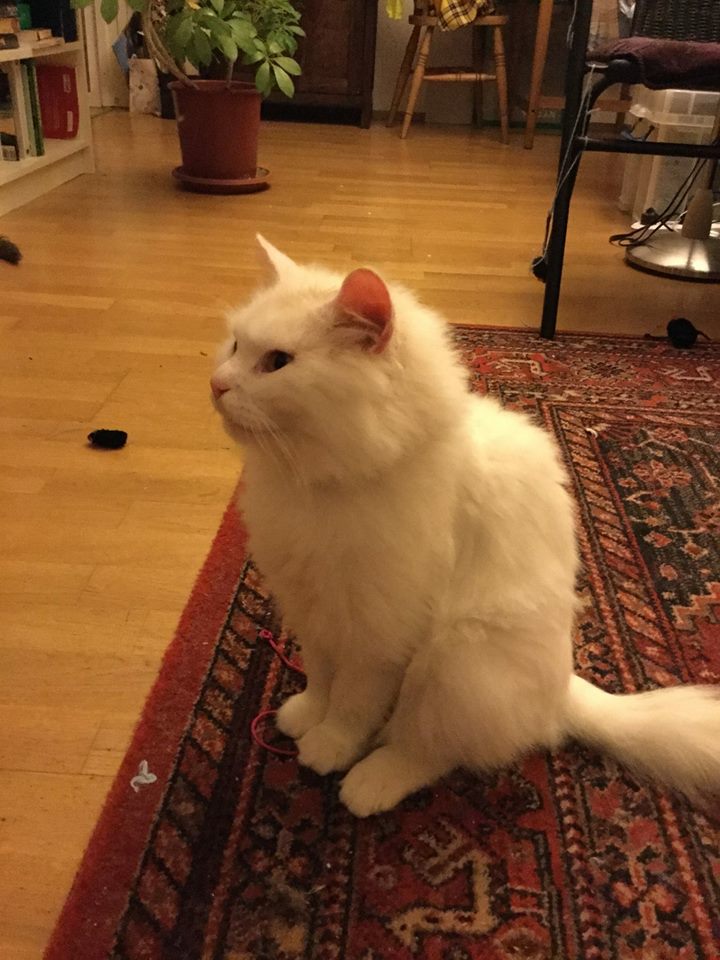 facebook/kunkushdias
facebook/kunkushdias
On February 12th, the feline's owners were finally located in Norway.
On Friday, Kunkush was reunited with his family, who chose to remain anonymous.
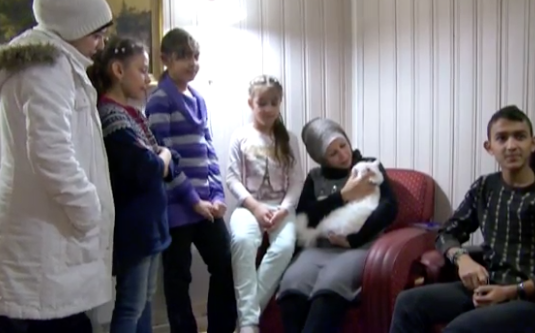 The Guardian - theguardian.com
The Guardian - theguardian.com
Kunkush's voyage is not unique to refugee families. Many Syrian refugees have also refused to leave their pets behind and have even carried them in their arms during their journeys.
The Guardian made this video:
